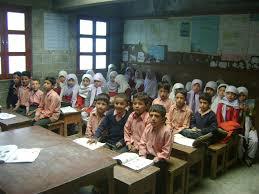
Access to quality education and the ability to learn about and enjoy one’s own culture are essential if children are to feel connected to their community and fulfill their own potential within it.
Yet nearly a billion people entered the 21st century unable to read a book or sign their names, and more than 75 million children are denied primary education. They are the world’s ‘functional illiterates’.
The ability to claim and enjoy the rights of an informed and responsible citizen rests squarely on a child’s access to a good basic education. A quality education - that encourages children’s participation and critical thinking, and is infused with the values of peace and human dignity - has the power to transform societies. This must be available to all children - including those with disabilities and from minority groups.
The fulfilment of a child’s right to education offers protection from a multitude of hazards, such as a life consigned to poverty, bonded labour in agriculture or industry, domestic labour, commercial sexual exploitation or recruitment into armed conflict.
Furthermore, the ability of children to play and participate in cultural activities is also vital to their development, quality of life and sense of community spirit. This is particularly important for children of ethnic minorities, including indigenous populations.
Relevant articles of the Convention on the Rights of the Child (CRC) dealing with education and cultural rights:
Right to education (article 28): The child has a right to education, and the State’s duty is to ensure that primary education is free and compulsory, to encourage different forms of secondary education accessible to every child and to make higher education available to all on the basis of capacity. School discipline shall be consistent with the child’s rights and dignity. The State shall engage in international cooperation to implement this right.
Aims of education (article 29): Education shall aim at developing the child’s personality, talents and mental and physical abilities to the fullest extent. Education shall prepare the child for an active adult life in a free society and foster respect for the child’s parents, his or her own cultural identity, language and values, and for the cultural background and values of others.
Leisure, recreation and cultural activities (article 31): The child has the right to leisure, play and participation in cultural and artistic activities.
Children with disabilities (article 23): A disabled child has the right to special care, education and training to help him or her enjoy a fulfilled life with dignity and achieve the greatest degree of self-reliance and social integration possible.
Children of minorities or indigenous populations (article 30): Children of minority communities and indigenous populations have the right to enjoy their own culture and to practise their own religion and language.
In April 2001, the Committee on the Rights of the Child adopted its General Comment No.1 - The aims of education on the significance of article 29.1 to the right to education in that children’s education must be child-centred, child-friendly and empowering, and goes far beyond schooling to include the development of personalities and talents.
In the Committee's General Comment No.8 (2006), paragraphs 7, 19 and 20 call for States to refrain from using corporal punishment in schools, reiterating that corporal punishment is incompatible with the Convention on the Rights of the Child.
Source: CRIN
 FR
FR EN
EN AR
AR








